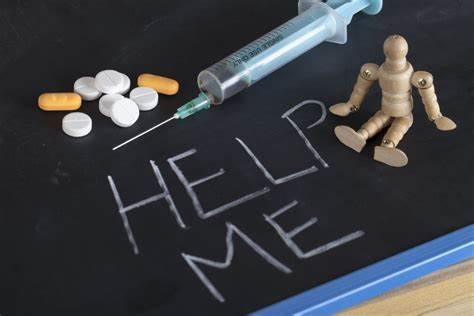Cocaine Addiction Treatment
Recognizing Cocaine Addiction: Symptoms and Signs
Recognizing the signs of cocaine addiction is crucial for early intervention. Common symptoms of cocaine addiction include:
01.
Behavioral Changes
Frequent and intense mood swings, increased impulsivity, agitation, or restlessness.
02.
Physical Signs
Dilated pupils, rapid heart rate, nosebleeds, weight loss, and decreased appetite.
03.
Psychological Symptoms:
Anxiety, paranoia, hallucinations, or feelings of invincibility.
04.
Social Impact
Neglecting responsibilities at work, school, or home, withdrawing from social circles, and experiencing financial difficulties due to drug use.
05.
Compulsive Use
An inability to stop using cocaine despite knowing the harmful consequences, along with frequent cravings and preoccupation with obtaining and using the drug.

The Importance of Seeking Treatment for Cocaine Addiction
Cocaine addiction is a chronic condition that requires professional treatment to address both the physical and psychological aspects of dependence. The sooner someone seeks treatment, the better the chances of achieving long-term recovery. It’s important to understand that addiction is not a moral failing or lack of willpower; it’s a medical condition that requires appropriate care.
Early treatment can prevent severe health complications, including heart attack, stroke, respiratory issues, and neurological damage. Moreover, professional help offers support, education, and coping strategies to help individuals rebuild their lives and regain control over their choices and actions.
Types of Cocaine Addiction Treatment
Detoxification (Detox)
The first step in treating cocaine addiction is often detoxification, a process that helps the body safely eliminate cocaine and other toxins. Detox typically takes place in a medically supervised setting to manage withdrawal symptoms and ensure the patient’s safety. Withdrawal symptoms can include fatigue, depression, agitation, increased appetite, vivid nightmares, and intense cravings. Medical professionals may provide medications to alleviate some of these symptoms and make the detox process as comfortable as possible.
Behavioral Therapies
Behavioral therapies are central to cocaine addiction treatment and have proven effective in helping individuals change their thought patterns and behaviors related to drug use. Focuses on identifying and changing negative thought patterns that contribute to cocaine use.A reward-based system that encourages sobriety by offering tangible incentives for maintaining drug-free status.A client-centered counseling technique that helps individuals find the motivation to change their behavior and commit to treatment.
Medication-Assisted Treatment (MAT):
Although there are currently no FDA-approved medications specifically for cocaine addiction, research is ongoing. Some medications, such as disulfiram, topiramate, and modafinil, have shown promise in reducing cravings and the desire to use cocaine. MAT should always be combined with behavioral therapies to enhance its effectiveness.
Support Groups and 12-Step Programs:
Participation in support groups, such as Cocaine Anonymous (CA) or Narcotics Anonymous (NA), can provide valuable peer support and help individuals feel less isolated in their recovery journey. These programs offer a sense of community, shared experiences, and ongoing encouragement from others.
Personalized Treatment Plans
No two individuals experience cocaine addiction the same way, so it’s essential to create a personalized treatment plan that addresses each person’s unique circumstances. A comprehensive assessment by healthcare professionals will consider factors such as the severity of addiction, co-occurring mental health disorders, medical history, and social support network. This assessment helps to develop a customized treatment plan that maximizes the chances of successful recovery.
Building a Strong Support System
Recovery from cocaine addiction is a lifelong process that extends beyond the completion of formal treatment. Building a strong support system is essential for maintaining sobriety. This includes staying connected with support groups, engaging in activities that promote physical and mental well-being, and developing healthy coping mechanisms for dealing with stress, triggers, and setbacks.
The Role of Family and Loved Ones in Recovery
Family support plays a vital role in the recovery process. Family members and loved ones can provide encouragement, understanding, and a stable environment that fosters healing. Family therapy is often incorporated into cocaine addiction treatment to help mend relationships, improve communication, and address any co-dependency issues. Educating family members about addiction also helps them understand what their loved one is going through and how best to support them.
Overcoming Relapse and Maintaining Sobriety
Relapse is a common part of the recovery journey and should not be seen as a failure but as an opportunity to learn and grow stronger in one’s commitment to sobriety. If a relapse occurs, it’s important to seek help immediately and revisit the treatment plan. Therapy, support groups, and sober living environments can provide additional layers of support to help individuals get back on track.
